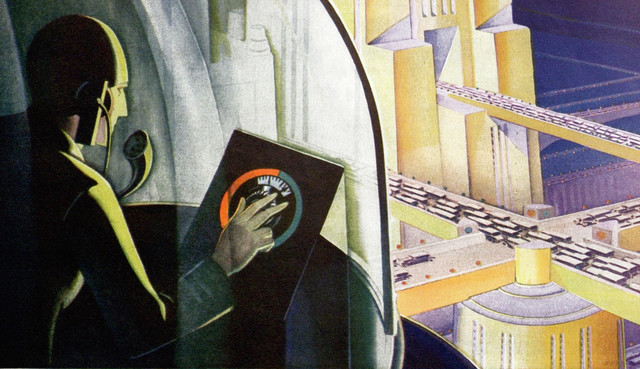Earlier this week Virginia Postrel published a great Bloomberg article titled Why Silicon Valley is Winning the Robocar Race. It’s a provocative look at what’s happening at the intersection of digital technologies and cars, and it also serves up a heap of great insights as to why Silicon Valley works the way it does. In it Virginia quotes digital big thinker and doer Brad Templeton, Stanford Revs Automotive Research Program Executive Director Reilly Brennan, and yours truly.
I really like the following passage:
The world of software — Google’s world — also produces a different mindset from the world of traditional car manufacturing. “Software companies have an amazing ability to release something un-perfect and slowly work their way up,” says Brennan, the executive director at Revs. Consumers anticipate progress, making early adopters more tolerant of flaws and shortcomings.
Of course, early automobile adopters were also tolerant. Silicon Valley is where Detroit was in the 1920s or ’30s, when cars were the newly indispensable technology. Its critics are culturally marginal, while its products remain touchstones of prosperity and progress. It’s only lightly regulated. Silicon Valley’s ever-optimistic innovators assume that if they’re doing something cool and important, nobody will seriously try to stop them. That cultural confidence — or outright cockiness — is as crucial as any particular technology to delivering on the decades-old promise of self-driving cars.
I also love her use of “robocars” instead of the usual “autonomous cars” phrase. It’s sounds so much more sexy and interesting. It’s like saying “sushi” instead of “cold, dead fish”, and I heartily encourage all of us to adopt it in lieu of the other one.
In the article I’m quoted as stating that even in the new Porsche GT3, “the entire experience is mediated by computers”, ergo the title of this blog post. The reason I said this is that with the new GT3, the steering, the suspension, the transmission, even the alignment of the rear wheels are all guided by computers. The computers aren’t driving the car, but they do help you drive the car, to give you the ultimate Porsche driving experience, even if you’re no Jeff Zwart when it comes to driving prowess. If you’re interested in learning more about the new GT3 and how its systems work, please check out the following video featuring GT3 product manager Andreas Preuninger:
Note well, product managers: Preuninger gives one helluva great product demo. If you can’t talk with this level of passion and insight about your product’s raison d’etre, you have to find a way to make that happen. Either make your product more exciting, or get more excited about it, or both! Excited product managers correlate very highly with amazing product experiences, and are likely even causal in achieving that outcome.
As an aside, I borrowed the image at the top of this post is from Virginia’s article, and it comes from a 1930 Saturday Evening Post advertisement. It depicts an engineer of the future controling an automated highway system of some sort. Doesn’t his control dial look a lot like a Nest thermostat?

